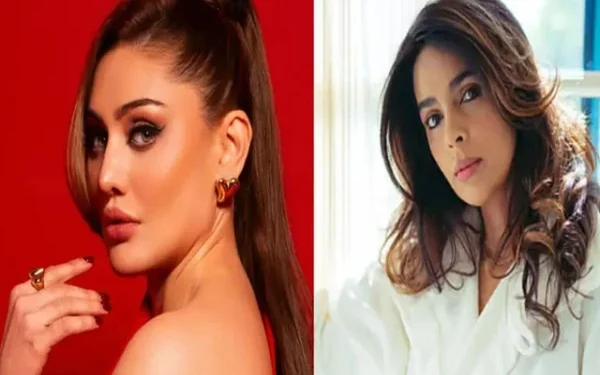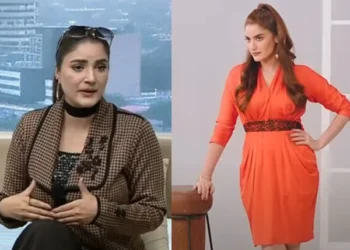The sudden and untimely death of Indian actress Shefali Zariwala, popularly known as the “Kanta Laga Girl,” has sent shockwaves through the entertainment industry and her fanbase. Shefali, who was only 42 years old, was reportedly in good health prior to her unexpected demise on June 27, 2025. Her passing has ignited a critical debate surrounding the unchecked use of beauty injections and cosmetic treatments within the film and fashion industry.
Tragic Death Sparks Concern
According to Indian media reports, Shefali Zariwala was rushed to the hospital late at night by her husband after she complained of uneasiness. Unfortunately, despite all efforts, doctors declared her dead upon arrival. The initial cause of death was stated as a sudden heart attack. However, subsequent investigations hinted at a more troubling cause.
Doctors later revealed that the heart attack might have been triggered by severe fluctuations in the body’s electrolyte levels—a condition that can disrupt heart rhythm and other vital functions. Investigations into her medical condition indicated the likely culprit: repeated self-medication involving anti-aging beauty injections and cosmetic drugs.
Beauty Injections and Their Potential Risks
In recent years, the popularity of beauty-enhancing injections like Botox, dermal fillers, and skin-whitening treatments has soared, especially among celebrities and influencers. These treatments promise youthful skin, wrinkle-free faces, and instant beauty. However, many of these products, when misused or taken without medical supervision, can have dangerous side effects.
Electrolyte imbalance, the suspected trigger for Shefali’s heart attack, can occur when substances interfere with the body’s natural chemical balance. In her case, police found two boxes of prescription cosmetic drugs in her home, which she had reportedly consumed right after dinner on the day she died.
Experts Warn Against Self-Medication
Medical professionals have long warned about the dangers of taking such drugs without a certified dermatologist’s supervision. Many anti-aging treatments include powerful compounds that, while effective in enhancing appearance, can interfere with the heart, kidneys, or liver when used improperly.
Dr. Ravi Mehta, a leading cardiologist in Mumbai, explained, “The body’s electrolyte balance is critical for maintaining proper heart function. Certain cosmetic drugs can lead to potassium and calcium imbalances, which may result in arrhythmias or sudden cardiac arrest.”
Industry Reactions: A Wake-Up Call for Celebrities
Shefali Zariwala’s death has sparked a broader conversation in Bollywood and Indian showbiz circles about the growing dependence on cosmetic enhancements. Several celebrities and medical experts are now urging for stricter regulation of beauty treatments and public awareness of the associated risks.
One of the first to speak out was actress Mallika Sherawat. In a candid and emotional video shared on social media, she emphasized the dangers of artificial beauty standards. Mallika, who appeared without makeup or filters in the video, delivered a heartfelt message to her fans and the wider public.
Mallika Sherawat’s Unfiltered Message
In her video, Mallika began by greeting her followers, saying, “Good morning, everyone. Today I come to you without any filter, without makeup, not even a comb. This is the real me.”
She continued, “In this age where filters and injections define beauty, I urge you all to reconsider what real beauty means. We are so caught up with Botox, fillers, and so-called perfection that we are losing touch with natural, healthy living.”
Mallika strongly advocated for a return to simpler, healthier routines—good sleep, regular exercise, a nutritious diet, and mental well-being. She encouraged people, especially women, to love themselves as they are rather than constantly striving for an unrealistic standard of beauty driven by social media and cosmetic trends.
The Pressure of Perfection in Showbiz
The entertainment industry often imposes intense pressure on actors to look flawless at all times. From red carpet events to on-screen performances, celebrities are expected to maintain a certain appearance, which has led to a boom in cosmetic procedures. But this chase for perfection can come at a heavy cost.
Shefali’s case is not an isolated one. Over the past few years, several actors and models across the globe have reported complications linked to cosmetic procedures—from skin infections to respiratory issues and, in extreme cases, death.
Legal and Regulatory Oversight in India
India’s cosmetic industry is currently one of the fastest-growing markets in Asia, but regulation remains patchy. While certified clinics and dermatologists do exist, the rise of unauthorized salons and online sellers of beauty drugs poses a serious risk.
The Indian government has taken steps to regulate cosmetic surgeries and injectables, but enforcement is still lacking. Many users, like Shefali, obtain cosmetic products without a prescription or from questionable sources, exposing themselves to counterfeit or dangerous drugs.
Raising Awareness: The Need of the Hour
The tragic incident has underscored the importance of creating awareness among the public regarding the responsible use of cosmetic treatments. Experts suggest that:
- All beauty treatments should be prescribed by qualified dermatologists.
- Strict bans should be enforced on over-the-counter sales of injectables.
- Celebrities should use their platforms to promote body positivity and self-care.
- Social media platforms must monitor advertisements and promotions of unregulated cosmetic products.
A Tragic Reminder with a Message
Shefali Zariwala’s sudden passing serves as a grim reminder of the dangers of cosmetic drug misuse. Her death, potentially caused by something as seemingly benign as beauty injections, should act as a cautionary tale for others.
Mallika Sherawat’s powerful message encourages society to embrace authenticity over artificiality, health over vanity. As the industry reflects on this tragedy, it is hoped that this moment sparks a broader movement toward responsible beauty standards, better regulation, and most importantly, greater self-love.

























